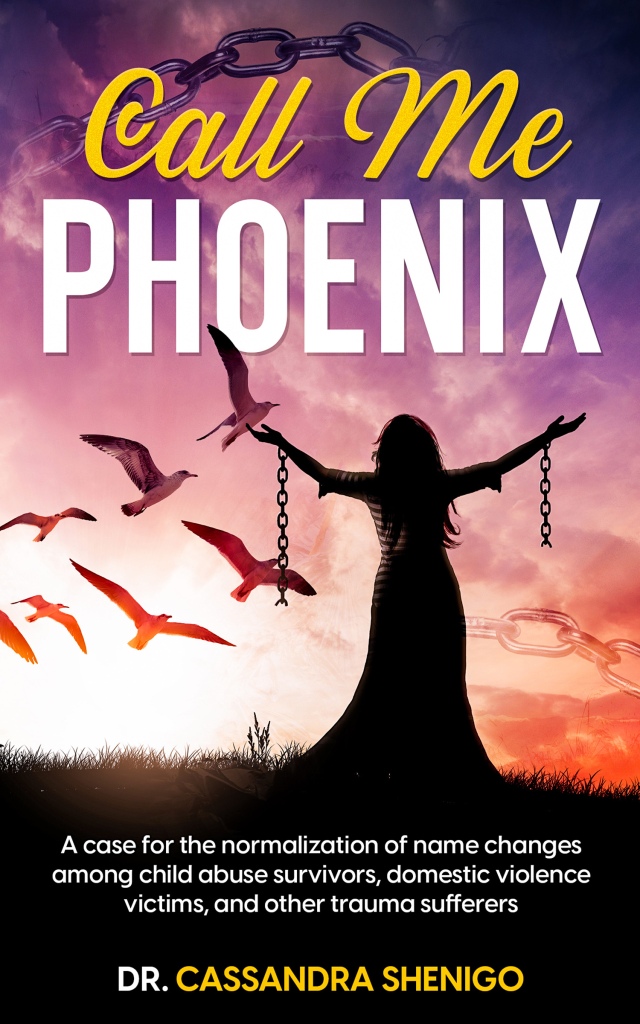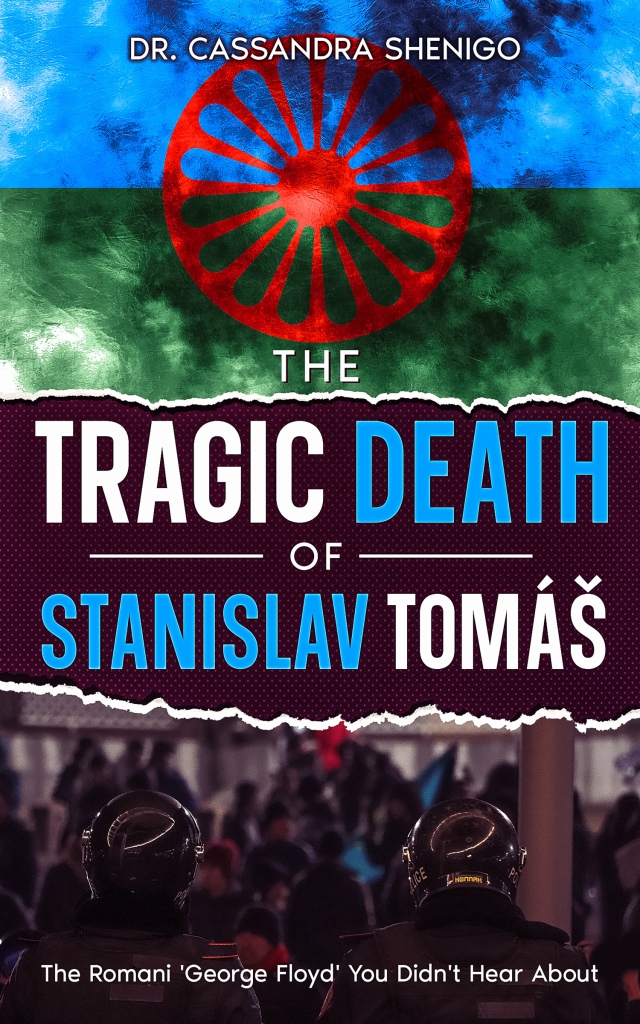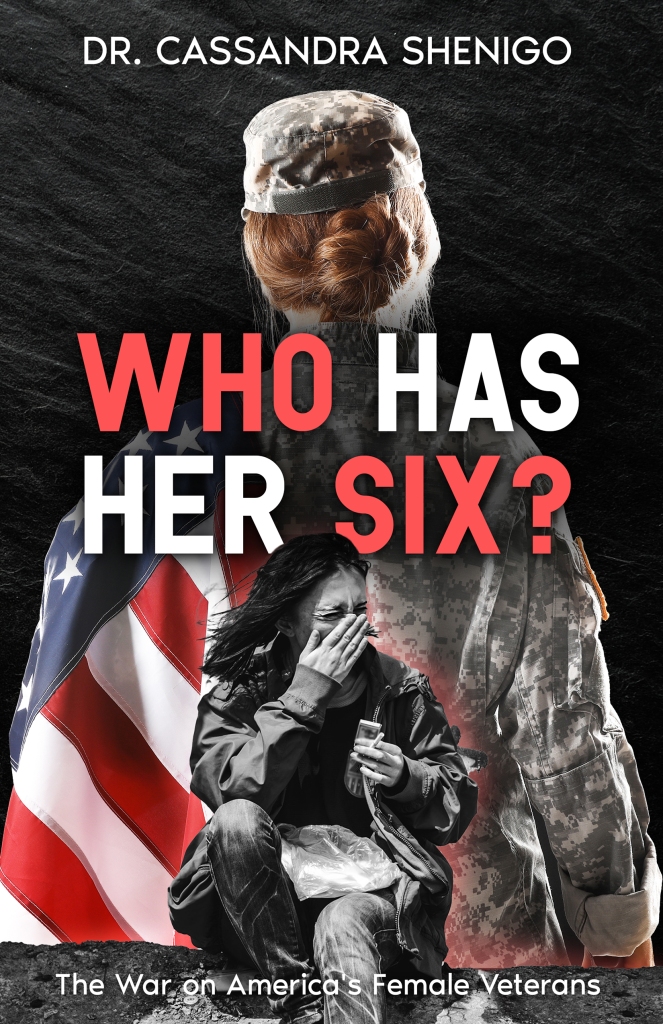Dr. Cassandra Shenigo is a highly esteemed sociologist and ethnographer who meticulously investigates various cultures with profound fascination.
She focuses on the Gypsy/Roma/Traveler, Appalachian, and Cajun/Acadian communities and has written three books, with four more coming by 2025.
Her work helps people understand these groups better, using both academic knowledge and personal insight. Outside of her job, Dr. Shenigo is a loving wife and mother to seven kids. She also helps out with charity work, including supporting police dogs and refugee families.
Dr. Shenigo has also worked in entertainment, written screenplays, and served in the military. All these experiences make her work in sociology and ethnography very special and inspiring to others.

Dr. Shenigo has kindly accepted to share with us her journey, insights, and aspirations as an author committed to fostering cultural understanding and promoting social impact.
Dr. Shenigo, do you recall how your interest in writing originated?
“I actually started writing when I was around 7 or 9 and just hated my life. My mother, before her passing, was not very stable, had addiction and mental health issues, it was just a mess. As flawed as she was, she was a huge reader and would force me to read Greek mythology, books on both demonology and theology, classics, you name it. Not all of it was ideal for a 7 year old but it definitely gave me a solid foundation in reading. It was a nice escape from her episodes, and allowed me to create basically an alternate reality to the one I lived in when she would be having an issue. It also really prepared me for auditions since I was actually able to read and comprehend a lot more scripts than some of my peers. It was an excellent coping skill, as well as a catalyst for my constant quest for answers.”
Do you consider writing as a career?
“I actually do not. I get a question stuck in my head and just NEED to find the answer to it and it’s kind of gone from there. Four times so far. My “fun” writing isn’t published and is completely opposite of what I am known for professionally but for some reason my research into sociological and ethnographic studies has become a topic of interest. My first book was actually based on my dissertation, and the research I put into it. I noticed when I would talk about it, it had a broad appeal, people’s eyes weren’t glazing over like they often do in research studies. I converted it into a more digestible format, and “Call Me Phoenix” was born.”

Was there a specific event or person who influenced you to become an author?
“I would say my father. He read every silly story, every universe I created, and when it came time to intensive research into other studies and go over data, he would stay awake and go over it with me, offering encouragement.”
Is there anything you find particularly challenging in your writing?
“For me, the hardest thing is I feel like my works are never really finished. I probably have at least 119 works of fiction and another 7 educational books sitting in drafts. The problem with humans is that everything evolves so one month I feel like I have gone over the data, reviewed everything, and am putting on the finishing touches, and the next something obscure but intriguing pops up and I’m either adding new chapters or starting a completely new project going in that direction. For fiction, it’s being careful to avoid something that has recently become frowned upon, or a particular character just takes on a story of their own and, it’s the same as the nonfiction, i find myself writing a whole new book.”
Do you have a specific writing style?
“I would say raw would be what applies to both types. I tend to show the absolute grittiest of either what my research shows or what my characters are up to. If there is research that shows female veterans are significantly more afflicted with intimate partner violence, I tell their stories, in their own words, completely unfiltered and remove the clinical terminology and sugar coating a lot of others do to make it more palatable. At least two of my books aren’t feel good books, they are wake up calls. They are saying, these communities are here, this is what they are going through, these are the challenges, this is how we can fix it.”
What is your writing routine?
“At least 90 tabs open to research papers and articles, piles of studies, 2 trenta Iced coffees and usually Korn, Brand New or Atreyu blaring in my headphones. Not necessarily the more traditional approach but it works for me.”
“I felt like I had to scream it from the rooftops that current policies get people killed. That abusers will list out aliases in court filings to utilize the court systems to punish their victims and out them”
Dr. Cassandra Shenigo
What inspired you to write your first book?
“My first book was actually inspired by my dissertation on normalizing name changes for child abuse victims, individuals who age out of foster care, and domestic violence victims as a standard therapeutic approach. I am all of those and it was super empowering when I had previously changed my name, I wanted to see if that was the case for everyone. I also wanted to see if the barriers that I’d encountered were being experienced by others. Unfortunately, they were, abusers were using them against victims to discredit them, abuse victims were having to jump through hoops to not publicize their name changes, in certain states, whenever they owned a property, deed would show both, academic institutions made transferring problematic, credit reports and data brokers were outing victims. It was just really eye opening and I just had to know if there was a solution. I had hoped that when gender affirming name changes became the norm, that maybe these other populations would have a way, but unfortunately, they did not get factored in. I felt like I had to scream it from the rooftops that current policies get people killed. That abusers will list out aliases in court filings to utilize the court systems to punish their victims and out them.”
What genre are your books?
“My books are non-fiction, educational books for now.”

Is there a message in your new book that you want readers to grasp?
“The current policies at local, state and federal levels are getting victims killed, found, stalked and revictimized. We need to come together to help those who have made dangerous choices to leave and not just abandon them.”
What was the hardest part of writing your latest book?
“That I personally experienced most of those situations and I belong to every category in it. Even recounting others scenarios was difficult because it was so similar to my own. Talking to victims, looking at the statistics, seeing the instances of military sexual trauma resulting in medboarding or chaptering with no benefits, abusers using legal loopholes designed to identify con artists and apply them to victims was really tough.”
If you had to do it all over again, would you change anything in your latest book?
“I feel like I was a bit remiss in not addressing transgender individuals in my book. I was more focused on the issues of cisgendered individuals because they were the ones who missed out on some of the protective legislation. I wonder if maybe I could have touched on that cohort as well since a lot of the situations are often similar. At the time of my writing, I didn’t feel qualified to weigh in, and there was plenty of representation. Maybe in an update, I will add in some of their journeys and struggles as well.”
How much of the book is realistic?
“Since it is all based on data, statistics, filings and first hand accounts, sadly, all of it.”
How many books do you have out, and do you have a favorite?
“I currently have two out, one coming out in April and three in the works. My favorite is ‘Who Has Her 6: The war on America’s female veterans’ because that one shines a light where organizations like the DOD and VA like to push it to the furthest darkest corners.”
How do you come up with character names? For situations where I changed their names, I chose the names of historical figures, dieties or names that meant what quality I felt their stories most embodied. For me, I retook my birthname of Cassandra, and if you look that one up, the story is pretty on par with my lived in experiences that were recounted.
“Both my own life and 119 other women and trauma survivors were the basis for two of my books, Call Me Phoenix and Who Has Her 6.
My favorite is Who Has Her 6: The war on America’s female veterans because that one shines a light where organizations like the DOD and VA like to push it to the furthest darkest corners”
Do you draw inspiration on someone you know, or events in your own life?
“Both my own life and 119 other women and trauma survivors were the basis for two of my books, ‘Call Me Phoenix’ and ‘Who Has Her 6’. My non fiction, honestly is based a bit on my husband. He is swoonworthy and I have secret stash of works based on him, his qualities and his looks. I mean, how many women can say their husband was chased down in a car by a crazed ex and got out, and made said ex cry, all while having the confident swagger of looking like a brunette Eric Northman in Volcom gear and Harley Boots? And then buys you snacks afterwards? Seriously, swoon!”
Do you have anything specific that you want to say to your readers?
“I hear you, I see you and I will tell your stories. I will help you to reclaim your power, either by forcing change, educating the masses on the trials or advocating for you. For those just curious, please understand that the realities described are happening all over. Probably to someone you know. Please sit through the uncomfortable parts so you can see the absolutely iconic reclamations of power.”
If you were not a writer what else would you like to have done?
“I have ownership stakes in a french lingerie company, a private investigation firm and a home valuation/public adjusting company so I guess you can say anything data driven, fact finding or spicy is what floats my boat.”

What is one valuable lesson about writing that you’ve learned along your writing journey?
“For my nonfiction works, basically, ‘come with receipts‘.”
What do you do in your spare time besides writing?
“Wrangling a half dozen children and various philonthropic endeavors. I am really big on giving back. We recently purchased K9 armor for a local police department, and support various organizations in Pennsylvania and Louisiana, as well as veteran causes. Additionally, we are completely redoing a fixer upper home we purchased in November 2023. That thing is taking up way more time than anticipated but it is worth it.”
What would you say is your most interesting writing quirk?
“The fact that without copious amounts of caffeine and nu-metal and screamo, I cannot get anything done. What can I say, I’m a 2000’s emo girl at heart.”
https://allauthor.com/author/cassshen
https://www.facebook.com/profile.php?id=61556689824241
https://www.instagram.com/CassShenigoBooks
Dr. Cassandra Shenigo is an accomplished sociologist and ethnographer with a deep-seated passion for understanding diverse cultures. Her expertise lies in conducting ethnographic studies within the gypsy/Roma/traveler (GRT), Appalachian, and Cajun/Acadian communities.
To date, Dr. Shenigo has authored three books and anticipates the release of four additional works by 2025. Her research contributions have provided valuable insights into the complexities and richness of these distinct communities that Dr. Shenigo both studies and is a part of.
Beyond her academic pursuits, Dr. Shenigo is a dedicated family woman. She is a devoted wife and a proud mother of seven children. She actively engages in many philanthropic endeavors such as providing body armor to police K9 officers, monetary contributions and providing furniture, clothing and housewares to refugee families in the Harrisburg area.
Dr. Shenigo’s diverse background extends to her previous experiences as a child star and musician. She has also ventured into screenwriting, movie production and has recently started working on a series of toddler through kindergarten aged books about Catholic Saints. Notably, she served honorably in the United States Army, demonstrating her unwavering commitment to her country and community.
Dr. Shenigo’s unique blend of academic expertise, cultural understanding, and personal experiences make her an exceptional voice in the fields of sociology and ethnography. Her unwavering dedication to research and social impact continues to inspire and empower others.
https://allauthor.com/author/cassshen

One thought on “Dr. Cassandra Shenigo: an accomplished sociologist, ethnographer, and author ”